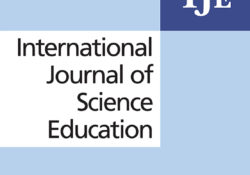Eric.ed.gov – Instructional Interactions of Kindergarten Mathematics Classrooms: Validating a Direct Observation Instrument
eric.ed.gov har udgivet: In this paper, the authors report research focused directly on the validation of the Coding of Academic Teacher-Student interactions (CATS) direct observation instrument. They use classroom information gathered by the CATS instrument to better understand the potential mediating variables hypothesized to influence student achievement. Their study’s purpose is to gather the kinds of validity evidences that match the proposed interpretations and uses of the CATS instrument (Kane, 2008; Messick, 1995). Therefore, they first explore the content aspect of construct validity by collecting information about the content relevance and representativeness of the observation instrument (Messick, 1995). Second, concerned about the consistency of the observation data collected across a number of independent observers, they measure inter-observer agreement. Finally, they focus on the criterion-predictive aspect of construct validity and investigate… Continue Reading
